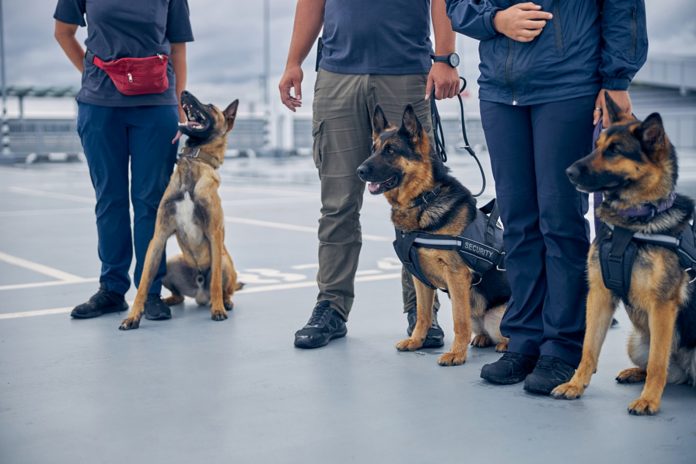Miami International has become the first airport in the US to trial the use of dogs to detect Covid-19.
The 30-day trial will see Cobra (a Belgian Malinois) and One Betta (a Dutch Shepherd) deployed at an employee security checkpoint.
The dogs have been specially trained to alert handlers to the scent of the virus on travellers, with the airport stating that “numerous studies have demonstrated that detector dogs are one of the most reliable tools available to identify substances based on the odours they emit”.
The airport explained that Covid-19 “causes metabolic changes in a person that result in the production of volatile organic compounds (VOCs)”.
These VOCs are excreted by a person’s breath and sweat, producing a scent that trained dogs are able to detect.
The trial follows “hundreds of training sessions”, in which the detector dogs achieved accuracy rates from 96 to 99 per cent for detecting Covid-19 in published peer-reviewed, double-blind trials.
“Covid-19 has reshaped the world and lifestyle we are used to,” said Kionne L. McGhee, Miami-Dade County Commissioner.
“It has forced our businesses to become innovative in how they do business. It has forced our faith-based organizations and schools to bring forth a different approach to how congregations and students are taught. Even our families have had to readjust and become more creative in how they socialize and celebrate special occasions.
“Therefore, we must not stay behind in our approach to fighting the spread of this virus. I am proud to be the sponsor of a programme that will bring about crucial life-saving benefits for our communities.”
The Covid-19 pandemic has forced airlines and airports to develop innovative programmes around the detection of and protection from the virus.
Earlier this year British Airways announced a trial of a new ultra-rapid Covid-19 antigen test which displays results within 25 seconds, and last year Etihad Airways trialled new airport technology designed “to help identify medically at-risk travellers”, potentially including those with the early stages of Covid-19.
























